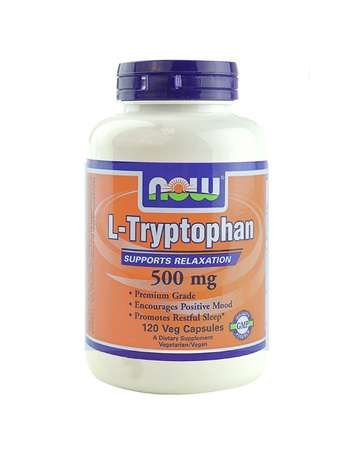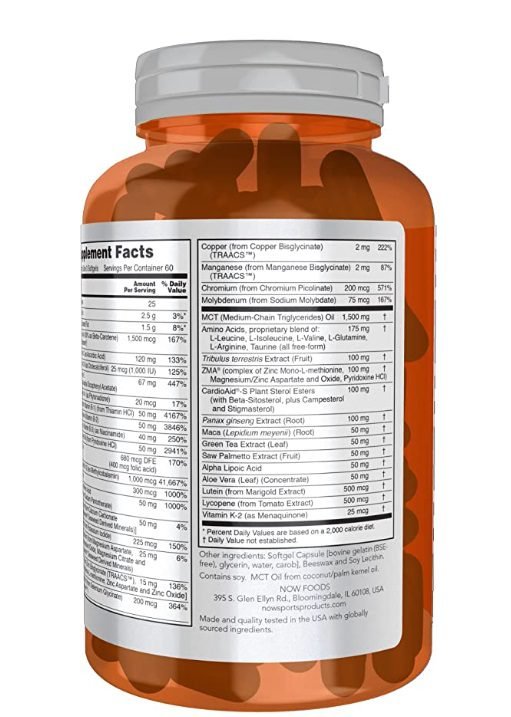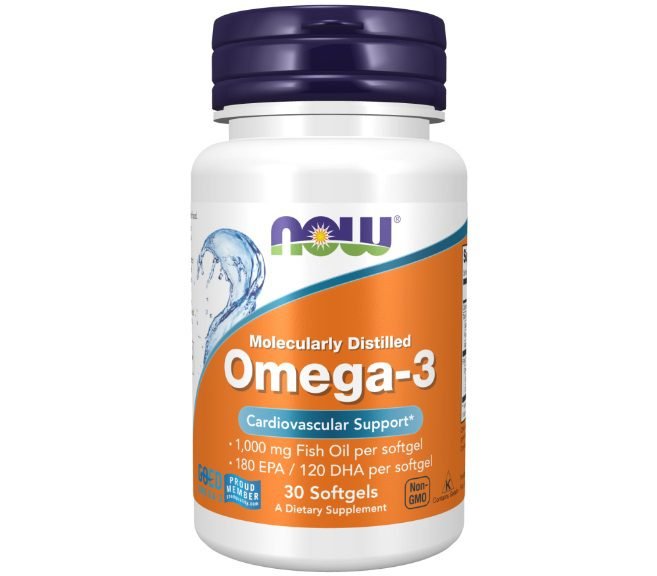
What Constitutes a Mental Disorder?
Everyone wants mental health for themselves. But it may backfire, possibly because we simply haven’t figured out what mental health is. Does not having a mental disorder equal mental health? What constitutes a “mental disorder”? Can “mental disorder” be cured?
1. What is a “disease”? What is “health”?
What is a “disease”? “Disease” is an abnormal change in the function and structure of the body’s organs due to certain reasons, and causes various symptoms and loss of ability. For example, coronary heart disease is the function of the heart due to blood vessel embolism in the myocardium, resulting in symptoms such as angina pectoris and heart failure.
And “not having disease” is not the same as having health. In 1948, the World Health Organization defined “health” as a state of harmony and tranquility in the physical, psychological and social aspects of an individual. So, being healthy is not just about not getting sick.
2. What is “mental disorder”?
While the organ involved in heart disease is the heart, the organ involved in psychosis is the brain. In psychosis, damage to a certain part of the brain produces a variety of symptoms, including abnormalities in cognitive functions, thoughts, emotions, senses, behavior, physiological functions (such as sleep, appetite), and affects how a person performs in all aspects of life. Like diseases of other organs, most mental illnesses are curable with appropriate treatment. With the development of scientific research, psychiatric treatment has been greatly improved in the last two or three decades, especially in drug treatment.
To understand mental illness, there are two important concepts to understand:
-
- The relationship between “brain” and “psychology” or “mind”;
- The relationship between “brain” and “body parts”.
What we call “psychology” or “mind” is actually a manifestation of brain activity, including thoughts, emotions, behaviors, senses, etc. The brain is the organ that produces the “mind”.
As one of the organs of the body, the brain is closely related to other organs. Normal brain function depends on the normal functioning of other organs. For example, if the heart fails and the brain does not get enough oxygen, the brain cannot function normally, leading to confusion. Similarly, the brain also affects the operation of other organs. For example, when the brain thinks of something frightening, the heart beats faster and blood pressure rises. It can be seen that “mental health” and “physical health” are inseparable.

3. How common is mental disorder?
Mental order is more common than many people estimate, and everyone has the opportunity to suffer from mental illness. A large survey in the UK found that one out of every six people in the working population suffers from a mental disorder, which is as common as asthma. In addition, one out of every 20 people over the age of 65 will suffer from dementia. In developed countries, about 5 percent of men and 10 percent of women will suffer from depression during their lifetime. In 2000, the World Health Organization predicted that depression would become the second most serious disease in the world after 20 years, second only to coronary heart disease.
Due to social discrimination and misunderstanding of mental order, patients are reluctant to seek medical treatment and receive treatment. Even when patients have the courage to seek medical attention, they often have to hide their illness. This has given the public the wrong impression that mental disorder is rare. So when we understand that mental disorder is not a terminal illness and is common in society, we can help ourselves and others overcome mental disorders.
4. What are the common types of mental illness?
-
- Alzheimer’s Disease
- Amnesia
- Anxiety Disorder
- Depression
- Bipolar Disorder
- Schizophrenia
- Panic disorder
- Obsessive compulsive disorder
- Bulimia nervosa
- Autism spectrum disorder
- Attention deficit hyperactivity disorder
- Dementia
- Hypochondriasis
- Insomnia
- Mood disorder
- Opioid use disorder
- Phobia
- Sleep disorder
- Video game addiction
- Oppositional defiant disorder
5. What are the causes of mental disorders?
The organ involved in psychosis is the brain. Mental illnesses, like most diseases of other organs, are caused by a combination of external and internal causes.
In psychosis, the underlying cause is largely genetic. “External pressure” mainly comes from various sad and mentally exhausting things in life, such as childhood abuse, lovelorn, unemployment, work and family burdens. Mental stress causes excessive production of “stress hormones” (including “cortisol”) in the body, which damages the brain. Other external stressors can be toxic chemicals (e.g. alcohol, drugs), or direct trauma to the brain (e.g. stroke, head trauma).
If a person’s brain is inherently weaker in physiological function due to genetic factors, when facing external pressure (such as breaking up with a relationship or taking drugs), his brain can no longer bear it, and psychosis will occur. Various mental illnesses have different main symptoms. For example, the main symptom of depression is depressed mood; the main symptom of schizophrenia is abnormal thinking and senses. Symptoms vary depending on which part of the brain is damaged, and which individual predispositions are inclined to the disease.

6. How do psychiatrists diagnose psychosis?
Everyone has mood swings, or some extreme thoughts. How to define an emotion or a thought as abnormal or even sick? How much depression does it take to be considered depression? In general, a mental illness has two parts – 1. the symptoms; 2. the symptoms that affect the functioning of daily life or cause distress to the individual. When identifying each symptom, a psychiatrist considers its persistence, severity, and other accompanying symptoms. For example, in depression, mood is markedly low throughout the day, lasting more than two weeks, with other symptoms (such as tiredness and loss of interest in things). These symptoms affect the patient’s function, such as the ability to work. Ultimately, identifying mental disorders requires the clinical skill and experience of a physician, so it is best to seek a diagnosis from a physician if mental illness is suspected.
When assessing a patient, a psychiatrist listens to the patient’s expressed feelings and thoughts and observes the patient’s behavior. The doctor will also collect relevant background information and living conditions of the patient, as well as the observations of the patient by relatives and friends. Doctors will use a series of internationally recognized diagnostic criteria to identify the type of mental illness a patient suffers from, and analyze how various problems in the patient’s life contribute to the occurrence of psychosis. Doctors use blood tests and computer sketches as an aid to rule out mental symptoms caused by diseases in other parts of the body. Therefore, the clinical skills of the psychiatrist and the willingness of the patient to disclose the condition are of the utmost importance for the accurate diagnosis of mental illness and the planning of treatment.
As mentioned above, the diagnosis of mental illness is mainly based on the clinical skills of doctors, and blood tests and computer sketches are auxiliary. The situation is different from the diagnosis of diseases in other parts of the body (such as heart disease, cancer). This difference is due to the fact that the organ involved in mental disorder is the brain, which is the most complex organ in the human body. Today’s general brain sketches can only show diseased tissues of no less than a few millimeters, such as brain tumors or hemorrhages. Therefore, the abnormal activity of brain cells in most mental illnesses cannot be displayed. For example, for a patient with schizophrenia, a “normal” brain sketch simply means the symptoms are not due to a brain tumor or hemorrhage, but they are definitely caused by abnormal activity of brain cells and can be treated with drugs of. In conclusion, brain lesions cause all mental illnesses.
Book Recommodation For Mental Health — Click the Book to Buy
Supplement For Mental Health – Click the Image to Buy
-
1. Improve immune system function.
2. Maintain the function of joint movement.
3. Balance normal blood sugar levels.
4. Rich in antioxidants to absorb harmful free radicals.
5. Helps maintain normal levels of cholesterol.
6. Maintain healthy lung function
7. Improve mental clarity
8. Reduce stress and overcome depression
9. Improve the sexual function and prevent erectile dysfunction.$160.92 -
Benefit of Now Foods Omega-3, Molecularly Distilled 30 Softgels
- Fight Depression and Anxiety.
- Improve Eye Health
- Promote Brain Health During Pregnancy and Early Life.
- Improve Risk Factors for Heart Disease.
- Reduce Symptoms of ADHD in Children.
- Reduce Symptoms of Metabolic Syndrome.
- Fight Inflammation.
- Fight Autoimmune Diseases.
- Improve Mental Disorders.
- Fight Age-Related Mental Decline and Alzheimer’s Disease.
- May Help Prevent Cancer.
- Reduce Asthma in Children.
- Reduce Fat in Your Liver.
- Improve Bone and Joint Health.
- Alleviate Menstrual Pain.
- May Improve Sleep.
- Good For Your Skin
-
1. Reduce fracture and fall risk
2. good for migraine
3. Beneficial for NAFLD
4. Beneficial for sarcopenia
5. Beneficial for chronic urticaria
6. Benign paroxysmal postural vertigo
7. Beneficial for sleep disorders
8. Beneficial for knee osteoarthritis
9. Beneficial for pneumonia prevention
10. Beneficial for new coronavirus infection
11. Reduce the incidence of preeclampsia
12. beneficial for autism
13. Beneficial for chronic obstructive pulmonary disease
14. Beneficial Cancer Events
15. good for TB
16. Beneficial Helicobacter pylori infection
17. good for gestational diabetes
18. Beneficial for blood lipid regulation
19. Boost male hormones (androgens)
20. Reduced low birth weight and small gestational age births
21. Aids in weight loss (weight loss)
22. prevent cardiovascular disease
23. good for multiple sclerosis
24. Beneficial for asthma improvement
25. Beneficial for major depression
26. Beneficial for Type 2 Diabetes
27. Reduce premature birth rates
28. Beneficial for Polycystic Ovary Syndrome
29. Beneficial for older people’s athletic ability (walking speed)?
30. Improve lower back pain?
31. Beneficial for atopic dermatitis
32. good blood pressure regulation
33. Beneficial for female pattern hair loss
34. Reduce the chance of cognitive impairment
35. Reducing Cold Events: Acute Respiratory Infections
36. Improve breast cancer prognosis and mortality
37. Beneficial Fatigue Phenomenon
38. Beneficial for irritable bowel syndrome
39. Reduce the incidence of schizophrenia
40. Mortality of hospitalized patients
41. Reduces the risk of stridor and asthma in offspring -
Benefit of Acetyl L-Carnitine
- Rejuvenate cell mitochondria and maintain their normal energy production, thus maintaining health
- Is a premium fat burning nutrient with stress management and nervous system protection benefits
- Restore the metabolism of fat and blood sugar to normal, promote better metabolism and brain function
- It has a high protective effect on the circulatory system of hyperglycemia
- Restore brain energy, prevent brain damage and decline, reduce free radicals and fat formation
- Has higher mental energy levels and better concentration
- Can improve the clarity of thinking, more alertness and greater awareness of perception
- It has the effect of reducing neutral fat and bad cholesterol, and can also inhibit the accumulation of liver and myocardial fat
- Helps increase protein muscle mass while reducing “leptin resistance”
- It is especially good at protecting nerve cells and has a very significant effect on nerve regeneration
- Increases production of serotonin and dopamine, making it a true natural antidepressant
- Restorative and energizing to the liver, helps metabolize calories in a more youthful manner
- It easily crosses the blood-brain barrier to support cognitive function, improve memory and learning ability
- It can help the brain memory of the elderly and prevent the decline of memory in the elderly
- Helps to slow down degeneration or even restore brain function after stroke traumatic brain injury
- Helps improve children with autism
- It has a direct anti-aging effect on mitochondria and reverses memory loss
- It is a fat-soluble anti-gasification agent and is highly active in nerves; provides excellent protection from stress and excitotoxic damage
-
- Helps maintain the normal secretion of thyroid hormones.
- Helps maintain normal growth, development, neuromuscular function.
- Regulates cellular oxidation.
- Improves cognitive memory function (under stress)
- Benefits phenylketonuria
- Good for depression
- Benefits schizophrenia
- Improves narcolepsy/narcolepsy
- Can improve human immune function.
- Can prevent cancer and fight cancer.
- Can protect the heart muscle.
- Protects the liver.
- Is an antioxidant.
- Can be involved in the treatment of diabetes.
- Protects and repairs cells.
- Improve vision and prevent eye diseases













































